Seahorse – a Tiny Alien on Earth – 10 Pictures
Isn’t it fascinating how here, on planet Earth which we call our home, there are multiple worlds with such a huge diversity of species? And some of these species really look and live much more like an extraterrestrial than anything that human imagination created.The world that is maybe the most different from our own is the kingdom of the oceans depth. And one of the creatures that seem the most alien and fascinating on one hand, but cute and amusing on the other hand is – the seahorse!
How tiny are these aliens?
There are around 50 different species of seahorses and they vary in both size and characteristics. The smallest seahorse is only 13 mm tall – which is approximately the size of half of your little finger! On the other hand, there is a giant amongst the seahorse family – this guy on the picture is almost 30 cm long. It is a good thing that these two species live very far away from each other: while the small one inhabits only the sea around Brunei, Malaysia and Indonesia the “huge” one lives in the waters around Australia and New Zealand. If it wasn’t so, you can only imagine their encounter: it would be like you meeting a giant around 50 meters tall, or a dwarf around 7 cm short.
1 / 10
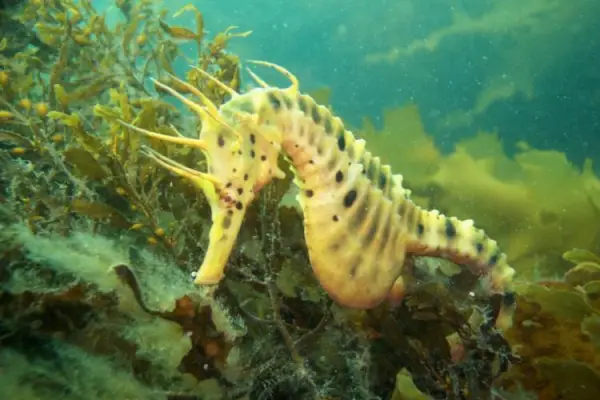
What are these creatures anyway?
Seahorses are actually fish. They are a rare example of fishes with an exo-skeleton. This means that, instead of spine and bones they have external bony plates that actually keep their body together. This exo-skeleton is uneatable, so most of the sea predators don’t touch them. The seahorses can also grow fleshy extensions to their skeleton which are called cirri. These cirri help them camouflage, because they give the seahorse a weird, weedy and monstrous look. It actually stops looking like a seahorse and transforms into a sea dragon!
2 / 10
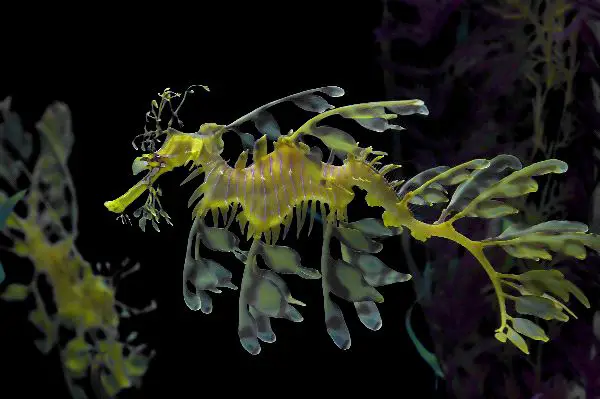
A horse, a dragon or a chameleon?
But the cirri are not the only thing that helps chameleon camouflage – he also has the ability to change colors and textures of his exo-skeleton according to his surroundings. In this way he is just like a chameleon! Just like the chameleon, the seahorses use this ability in their love games, and not only for hiding.
3 / 10
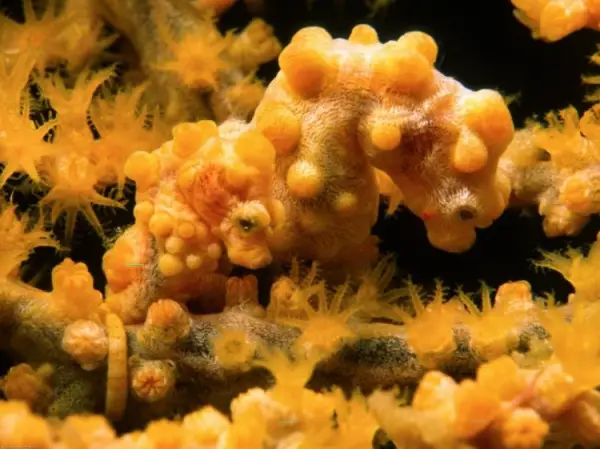
Can a seahorse hold your hand…?
They say that the seahorse is the only fish that can hold your hand. Now what is that supposed to mean? As you can see on the picture below, the seahorse can use his tail to grab on the seaweeds, chorales and other things that float in the sea depths. That is what they could hold your hand with… well maybe not really your hole hand, but your pinkie certainly.
4 / 10
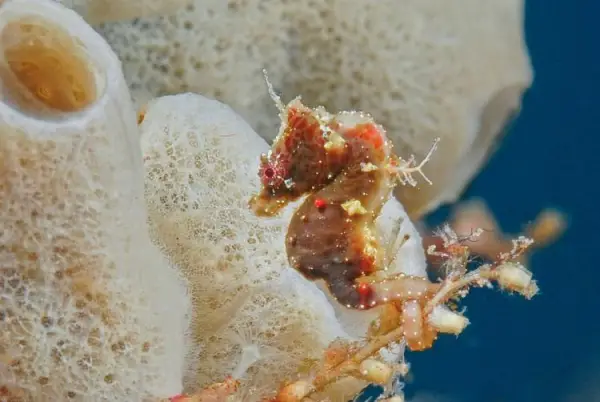
…or hitchhike?
This monkey-like tail feature compensates for other disabilities. For instance, do you think that a seahorse is a great swimmer? Well, it lives in the sea so it probably is, right? Wrong! Look at their body shape: if a shark is a good swimmer, then a seahorse certainly can’t be one. They are such bad swimmers and they have so tiny bodies that they can easily die of exhaustion during storms or when they are searching for partner too far. This is where the tail comes in handy: they use it to grab on to floating weed or other debris and in this way hitchhike their way through bigger distances on the sea-roads.
5 / 10
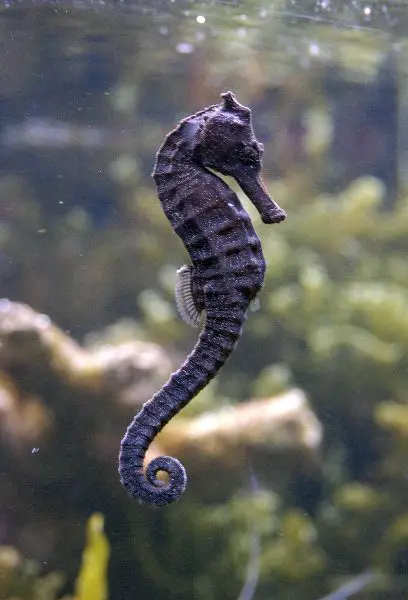
What is the similarity between a seahorse and an elephant?
Believe it or not there is a similarity between a seahorse and an elephant: it’s the snout! The seahorses use it in quite a similar way like the elephants – they probe into nooks and crannies in search of food. When they finally find it they suck it in with the snout like a vacuum cleaner. If the pray happens to be larger, the snout expands. Which brings us to the next question…
6 / 10
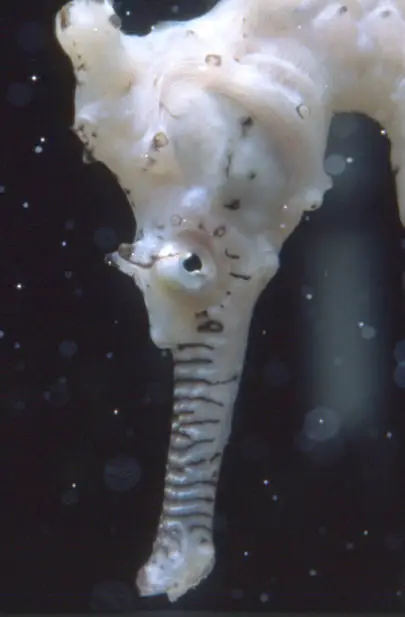
What on Earth do these aliens eat?
Well, obviously it has to be something even tinier then they are. So that doesn’t leave the poor seahorse with a lot of choice: mostly they eat planktons and tiny shrimps. They don’t have teeth nor a stomach (nor any digestive system whatsoever) so they have to eat almost constantly to stay alive. The seahorses are really fragile little creatures and, other then camouflaging abilities they have only one important asset…
7 / 10
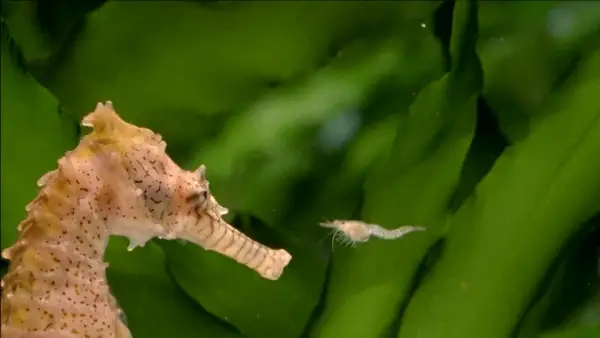
…Incredible eyesight!
Not just that their eyesight is incredibly strong, but both of their eyes can work independently. This means that they can move their eyes in opposite directions – for instance they can see in front of and behind themselves at the same moment!
8 / 10
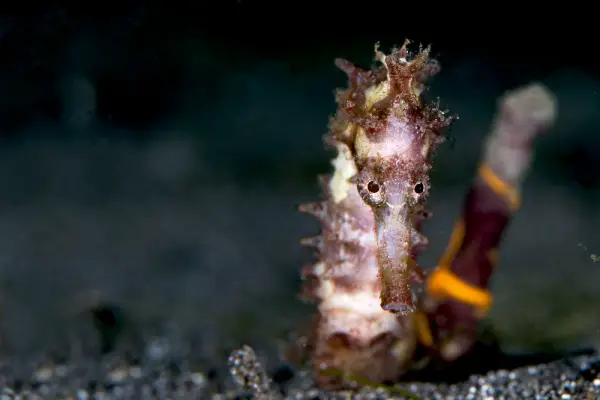
Seahorses’ crazy love dance
Seahorses are famous for their love life, probably because their love rituals and customs remind us of our own. Many of the subspecies mate for life, some of them only for one season, whilst some of them live in groups which constantly switch partners. Before they mate, they perform a beautiful dance in which they circle around each other and change colors. What is even more fascinating is that the pairs that stay together don’t do this only once: every morning they greet each other with promenades and pirouettes. They do this for several minutes, before each one parts their own way in search of food. Seahorses also “hold hands” to reinforce their bond, like the couple on the picture.
9 / 10
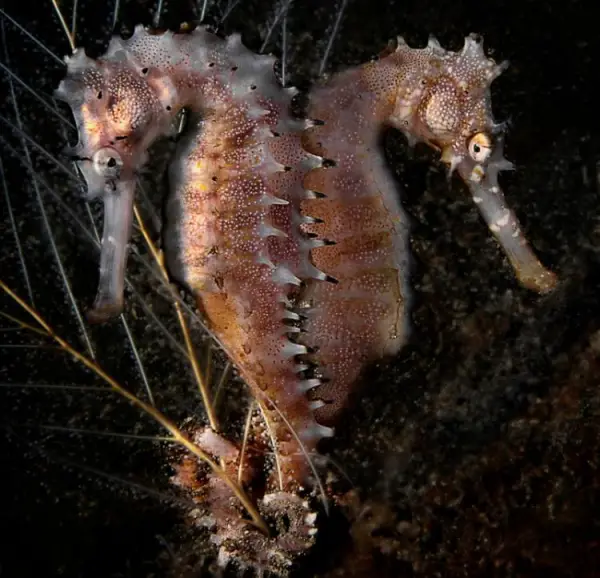
Can male seahorses really be pregnant?
This is a fact that the seahorses are most famous for: it is one of the rare species which has the male specimen carrying the eggs, or in other words – being pregnant. As you can see on the picture, the male seahorse grows a kangaroo-like pouch in which the female deposits the eggs. Than the male fertilizes them and carries them around two weeks.
10 / 10
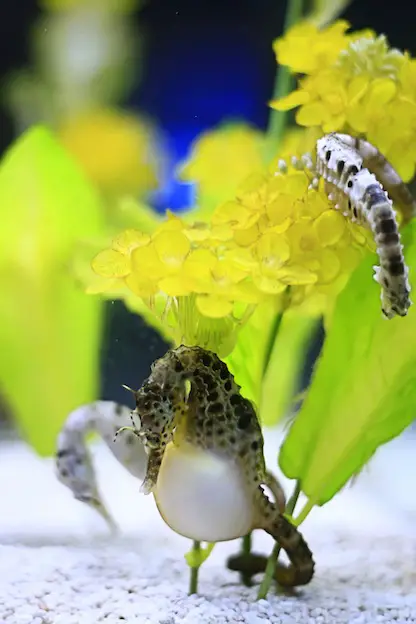
Image Sources:
- ocean.si.edu/sites/default/files/styles/colorbox_full/public/photos/2a%20-%20Hippocampus%20abdominalis%20-%201000px.jpg?itok=znxd0XWL
- seahorseworlds.com/wp-content/uploads/Leafy_Sea_Dragon_In_Indonesia_600.jpg
- ocean.si.edu/sites/default/files/styles/colorbox_full/public/photos/1b%20-%20Hippocampus%20barbiganti-1000px.jpg?itok=6fknOh96
- ocean.si.edu/sites/default/files/styles/colorbox_full/public/photos/9%20-%20Hippocampus%20pontohi%20-%201000px.jpg?itok=MuagmHry
- seahorseworlds.com/wp-content/uploads/Seahorse_Also_Known_as_Hippocampus_600.jpg
- theseahorsetrust.org/images/fact4.jpg
- footage.framepool.com/shotimg/qf/893076136-mysida-seahorse-capturing-water-plant.jpg
- static1.squarespace.com/static/55930a68e4b08369d02136a7/t/55f8ad91e4b075e46824741f/1442360849645/?format=1000w
- ocean.si.edu/sites/default/files/styles/colorbox_full/public/photos/4%20-%20Hippocampus%20histrix%20-%20800px.jpg?itok=aHq4Qke3
- seahorseworlds.com/wp-content/uploads/reproduction_624.jpg
